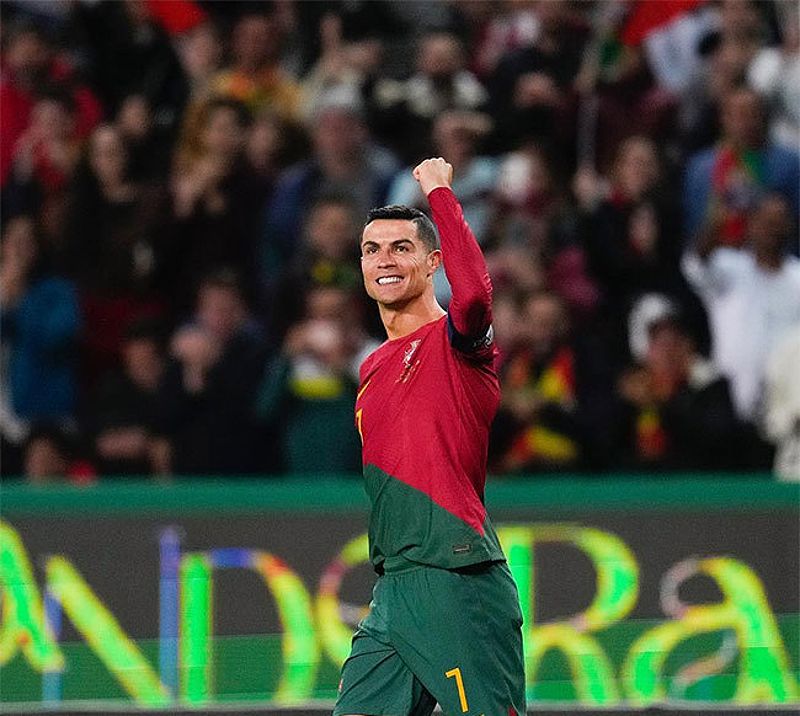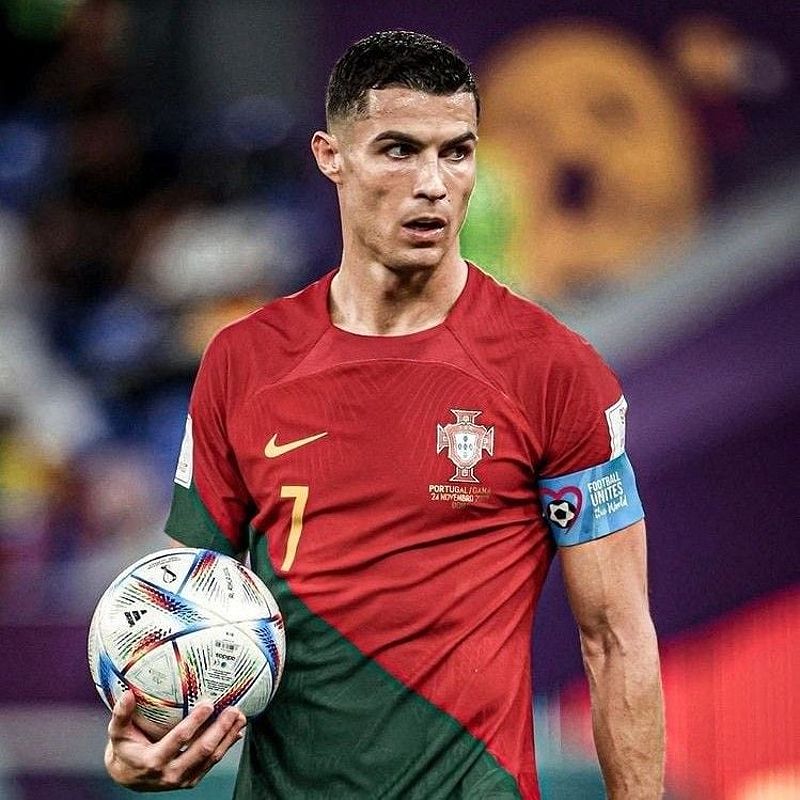Fantasy football thrives on predicting player performance, and the UEFA European Championship presents a unique challenge: identifying the top scorer in the EURO. Cristiano Ronaldo’s record 14 goals stand as a testament to sustained excellence, yet predicting future success remains difficult given the unpredictable nature of international tournaments. This article examines historical trends, potential contenders for the coveted title, and strategies for fantasy football success.
All-Time EURO Top Scorers: A Statistical Deep Dive
When we talk about the top scorer in the EURO history, we can’t overlook the legendary Cristiano Ronaldo of Portugal. His impressive tally of 14 goals across five EURO tournaments sets the standard for excellence. Not only does he hold the record for the most goals in EURO history, but he also leads in EURO qualifying goals, showcasing his ability to deliver on the biggest stages.

Following Ronaldo is Michel Platini, who scored an astounding 9 goals in the 1984 edition of the tournament—a record that remains unmatched to this day. This singular achievement highlights the extraordinary talent and form he exhibited during that competition.

In third place, we have Antoine Griezmann, who netted 7 goals. Interestingly, he shares this spot with England’s Alan Shearer, who also scored 7 times throughout his EURO appearances. Other notable names include Thierry Henry and Zlatan Ibrahimović, each with 6 goals to their names.

A fascinating aspect of the scoring charts is the emergence of Spanish players. Alvaro Morata has recently surpassed Fernando Torres as Spain’s top EURO scorer, both having scored 6 goals. This change reflects the ongoing evolution of talent within the Spanish national team and emphasizes the consistent attacking prowess they possess.

The Impact of Tournament Expansion
The history of EURO scoring is also influenced by the tournament’s expansion. Initially featuring just 4 teams, the EURO expanded to 8 teams in 1980, then 16 in 1996, and finally 24 in 2016. This expansion not only increased the number of matches but also provided more opportunities for players to score. However, this increase in matches could be countered by the argument that heightened competition might lead to more defensive tactics, thus potentially neutralizing the impact of additional games on overall goal tallies.
When it comes to efficiency, Platini shines with a remarkable goals-per-game ratio of 1.8, followed by Ronaldo at 0.93 and Griezmann at 0.64. These statistics not only underscore their scoring capabilities but also demonstrate how some players have capitalized on their chances throughout the tournament’s history.
Analyzing EURO Goalscoring Trends Over Time
Understanding the top scorer in the EURO involves examining the shifting trends in goalscoring across various tournaments. Historically, early editions of the EURO featured free-flowing, high-scoring matches, attributed to a more open and attacking style of football. However, as the game has evolved, so too have the strategies employed by teams, resulting in a more tactical and possession-based approach that has led to a decline in overall goalscoring rates.
The Impact of Tactical Shifts
The shift towards more tactical play has been notable in recent tournaments. Teams now prioritize possession and defensive solidity, often sacrificing the attacking flair that characterized earlier editions. For instance, Spain’s tiki-taka style emphasized short passes and maintaining possession, which, while effective, sometimes led to lower goal totals. Similarly, Italy’s pragmatic approach has often focused on defensive organization, further contributing to reduced scoring rates.
The Role of Individual Brilliance
Despite these tactical shifts, individual brilliance can still shine through. Players like Cristiano Ronaldo have consistently found ways to score, even against the most disciplined defenses. His ability to create scoring opportunities, coupled with his unmatched work ethic, ensures that he remains a top contender regardless of the tactical landscape.
In recent EURO editions, the average number of goals per game has fluctuated significantly, from 2.1 in EURO 2016 to 2.5 in EURO 2020. This suggests a nuanced picture of scoring trends, highlighting that while there may be a general decline, certain tournaments still present exciting opportunities for goal-scorers.
Predicting Top Scorers for EURO 2024 and Beyond
As we look forward to EURO 2024, the quest for the next top scorer in the EURO is on. While Cristiano Ronaldo may be advancing in age, he remains a formidable force and is expected to continue his pursuit of extending his lead in the all-time scoring charts.
Among the younger stars, Kylian Mbappé of France and Harry Kane of England are poised to challenge for the top scorer title with their remarkable goal-scoring abilities and creative play. Their performances in both club and international competitions indicate they could be strong contenders. Additionally, the emergence of young talents like Jamal Musiala (Germany) and Jude Bellingham (England) adds even more excitement to the mix. These players have already made their mark at the club level and are eager to showcase their abilities on a grand stage like the EURO.
The Impact of Injuries
Injuries can significantly impact predictions for top scorers. Past tournaments have seen key players miss out due to injuries, altering the landscape of potential contenders. For example, during EURO 2020, several high-profile players were sidelined, which shifted the focus to emerging talents. While established stars with proven track records still hold an advantage, the unpredictable nature of injuries adds an element of uncertainty.
To build a successful fantasy team, keep a close eye on the form and fitness of these players leading up to the tournament. Analyzing their recent goal-scoring and assist statistics can provide essential insights into their potential impact. Moreover, understanding the overall strength of each team and their tactical strategies will help you identify the most promising players for your fantasy squad.
Beyond Goals: Key Fantasy Metrics to Consider
While goals are undoubtedly the primary focus for fantasy football players, other crucial metrics can contribute significantly to a player’s overall fantasy value. Assists, chances created, and key passes are essential components that can complement a player’s goal-scoring potential and maximize your fantasy points.
For instance, players like Kylian Mbappé and Kevin De Bruyne may not always lead the tournament in goals, but their ability to create scoring opportunities for teammates makes them invaluable in fantasy leagues. A well-rounded approach to team selection that considers various statistical categories will enhance your chances of success in fantasy football.
Leveraging Resources for Fantasy Football Insights
For fantasy football enthusiasts looking to gain an edge in their leagues, resources can provide invaluable insights. This platform offers detailed statistics, player analyses, and expert opinions that can enhance your understanding of player performances and trends. Utilizing such resources can help you make informed decisions when assembling your fantasy squad, ensuring you stay ahead of the competition.
Here are some key features you can benefit from:
- Comprehensive Player Stats: Access up-to-date statistics on players’ performances in both domestic and international competitions.
- In-depth Analysis: Read expert analyses that break down players’ strengths, weaknesses, and potential impact in upcoming matches.
- Fantasy Tips: Get actionable tips and strategies tailored for fantasy football, helping you optimize your team selection.
By integrating these resources into your strategy, you can significantly improve your chances of success and dominate your fantasy league during EURO 2024.
Utilizing Data for Optimized Fantasy Team Selection
To build a winning fantasy team, utilizing historical data and current player form is essential. Here are some practical strategies to consider:
- Track Player Performance: Stay updated on how players perform in their club competitions leading up to the EURO. This can provide vital insights into their form.
- Assess Team Dynamics: Consider the overall strength of each national team and how their style of play might impact individual players’ performances.
- Balance Risk and Reward: Be mindful of potential injuries and fluctuations in form. Balancing established stars with emerging talents can lead to a more robust fantasy lineup.
Conclusion
In conclusion, understanding the historical top scorers of the EURO championships, analyzing key trends, and predicting future performances are essential for fantasy football success. The impact of tournament expansion, tactical shifts, and the emergence of young stars are critical factors to consider. By leveraging historical data and considering other vital metrics, you can make informed decisions that significantly improve your chances of winning your league. Use this information to build your dream team and dominate your fantasy league during EURO 2024!



